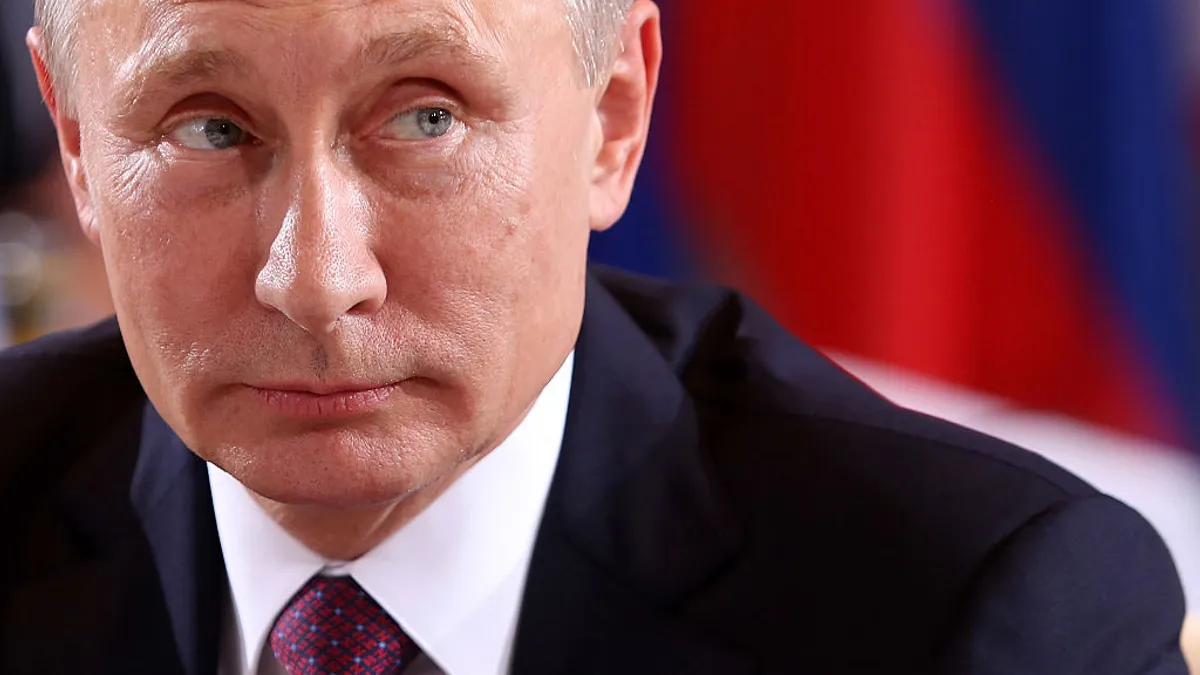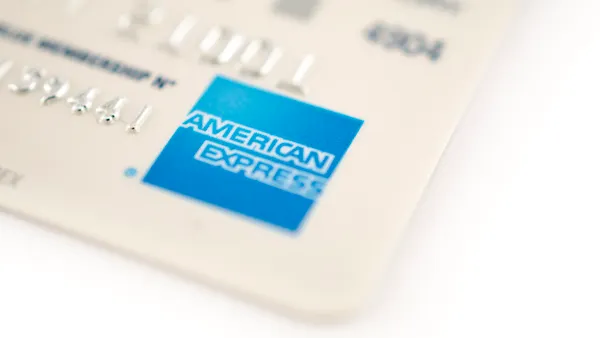The U.S. payments industry won’t escape the impact of Russia’s invasion of Ukraine unscathed, but the conflict is unlikely to have a material effect on the companies' revenue.
Three analysts who follow the payments industry all issued reports this week saying they expect the big card network companies and other payments players to experience little impact, despite their cross-border operations. Generally, the analysts anticipate well under 5% of revenue to be affected.
"While follow-on impacts from the Russia-Ukraine situation are difficult to predict, direct exposure to Russia across our Payments universe is minimal, with the region accounting for <5% of revenue across all our covered companies," analysts from the financial firm Cowen Equity Research said in a Thursday note to clients.
Cowen covers card giants Visa and Mastercard, payments processor Global Payments, digital payments behemoth PayPal and payment services company FleetCor Technologies, but only expects the card companies and FleetCor to have "quantifiable exposure."
Analysts estimated the impact to the card companies could be about 2% or less, based on Visa and Mastercard disclosures in 2014. That year, Russia sought to impose new fees on the companies, prompting a flurry of discussion about the topic. At that time, the companies said that about 2% to 3% of payments volume came from cards issued by Russian banks, which amounts to about 1% of revenue today, according to a Wolfe Research report issued Tuesday.
During the past few years, Russia has moved to more locally processed domestic transactions, making its exposure to the card giants less material, the Wolfe report to clients on the subject said. Cowen's analysts agreed.
"While Russia's domestic network MIR has grown to a sizable share of transaction volume, accounting for ~25% of all transactions according to the Central Bank of Russia, we do not believe it has had a material impact on (Visa's and Mastercard’s) revenue contribution from the country," the Cowen note said.
Those views regarding Visa and Mastercard's impacted business were echoed by analysts at financial services firm Baird in their Thursday note.
Baird analysts estimate Russia accounts for about half of Visa's volume from the region that includes central Europe, the Middle East and Africa. For Mastercard, the second-largest U.S. card company behind Visa, Baird estimates Russia accounts for about 10% of the company's business in Europe.
For FleetCor Technologies, which provides payment processing services mainly for transportation companies, Wolfe estimates Russia accounts for less than 10% of the company's fuel card business. "Russia is one of (FleetCor's) four international fuel card markets, but we estimate Russia is not more than mid-single digits percentage of the fuel business," the Wolfe note said.
One of Western Union’s largest white-label partnerships is with Sberbank, Russia’s largest lender. Wolfe estimates that Russian segment of the company's white-label operations accounts for about 1% of the company’s total revenue.
Western Union’s rival Euronet Worldwide has "negligible" overall exposure to Russia, but it has some limited exposure through its Ria money transfer partnership with Russia’s VTB Bank, Wolfe said.













